
Shelagh Fogarty 1pm - 4pm
21 March 2023, 14:25 | Updated: 21 March 2023, 14:41
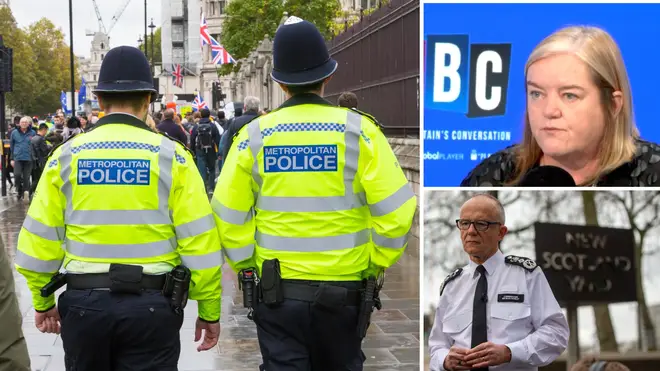
The baroness who drew up a damning review into the Met says the force needs to "woman up" and take responsibility for itself.
Baroness Louise Casey's report stopped short of calling for the UK’s largest police force to be split up after numerous high-profile cases of officers abusing their power.
But she too did not rule out the possibility that the Met could be harbouring more criminal officers like killer Wayne Couzens and serial rapist David Carrick.
The 363-page report details misogyny, homophobia and racism throughout the force, find senior officers tried to "shift the problem" instead of deal with it, and that women's services were deprioritised.
Speaking to LBC's Shelagh Fogarty after the report was published, she said: "The Met needs to "woman up" to be really blunt about the fact they need to take responsibility. For the way they behave.
"And they blame the media a lot, so very interesting when we ask them where do you think the reputation of the Met has nosedived, they blame you, they blame the media.
"And I keep saying to them 'if you didn't have officers that are being done for indecent assault that are in the newspapers… you wouldn't have anything to talk about'."
"So there's an abdication of responsibility that goes right throughout the ranks, and denial and defensiveness that they have to change."

Baroness Casey: 'The Met needs to woman up'
The scale of the change needed in the Met was laid bare to Shelagh when one caller described how she had been beaten by her husband 10 years ago after she told him she would leave him because he had been having an affair.
She said he recorded what happened until he was arrested by police, and during her ordeal she told him she wished he was dead.
The caller told Shelagh: "A female police sergeant rang me. She gave me an update. I said 'right, will he be charged?
"And she laughed, she said no. I said 'pardon?' She said 'I'm not charging him. She said what you did to him... you shouldn't have done what you did.
"I said 'what did I do?' She said you wished him dead, we've seen the video. I said 'so he's hit me in the face, punched me, pulled my hair out, in front of my two children, and you're not going to charge him?

Caller shares her traumatising experience female police officer
"She went no, you're very close to being charged yourself. I went home from the theme park [where she had taken her children for the day] and my ex-husband is standing in our house. Nothing happened to him."
She said she moved in with her parents but a few weeks later his sister tried to run her over. When she went to Hertfordshire Police, she said the male officers' jaws hit the floor.
"They could not believe that nothing had happened to him," she told Shelagh.
The head of the Metropolitan police today admitted the force is “letting down” the people of London, after the bombshell report revealed the force is institutionally racist, misogynistic and homophobic.
Met Commissioner Sir Mark Rowley told LBC this morning: “Step by step we will reform the policing of London, I hope Londoners will work with us on this mission.”
He explained the force is in the process of going through officers' backgrounds, re-vetting them to root out any corrupt police by “checking them against national databases.”

Met Commissioner Sir Mark Rowley comments on Louise Casey's ‘galvanising’ report
But he admitted it was impossible for him to rule out there being another police officer like serial rapist David Carrick among their ranks.
Firearms officer Carrick, 48, admitted 85 crimes including rape and assault during a 17-year campaign of terror and attacks against women. He was jailed for life last month.
Sir Mark told Nick Ferrari: “It hurts to read [the Casey report] when you care about the service. I care deeply about it, and deeply about our people and the public of London. We’re letting them down so badly.
He said he was personally hurt reading the stories of individual officers in the report who had been impacted by the damaging culture of the Met.
The review, which was commissioned after the abduction, rape and murder of Sarah Everard in March 2021, has found evidence of discrimination being “baked into the system”.
Baroness Casey has warned the force’s leadership would have to “wake up” and bring about “fundamental change” in light of her findings.
Without that, her report says, “more radical, structural options, such as dividing up the Met into national, specialist and London responsibilities, should be considered to ensure the service to Londoners is prioritised”.
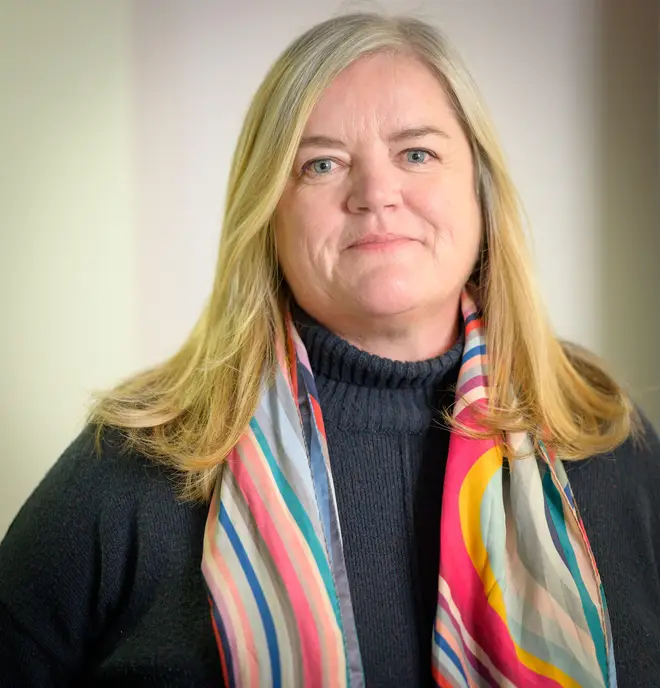
Baroness Casey said earlier: “The findings of this review are very grave and very serious. At the core of the change needed is the necessity for the new leaders of the Met to believe and wake up to the fundamental reform that is needed.
“It could so easily be another report the Met writes off and forgets. My fear is that as silence descends on this review that the Met Police Service will move on. I don’t want them to move on.
“It’s really important it’s not a watershed moment everyone feels drowned in.”
She said that the report was "rigorous, stark and unsparing" - but asked if there could be more officers like Couzens and Carrick in the force, she said: "I cannot sufficiently assure you that that is not the case."
The 380 page report sets out 16 recommendations for the police force to implement around cleaning up the ranks, re-prioritising women and children, building trust and restoring consent with Londoners, while showing that reform is working.
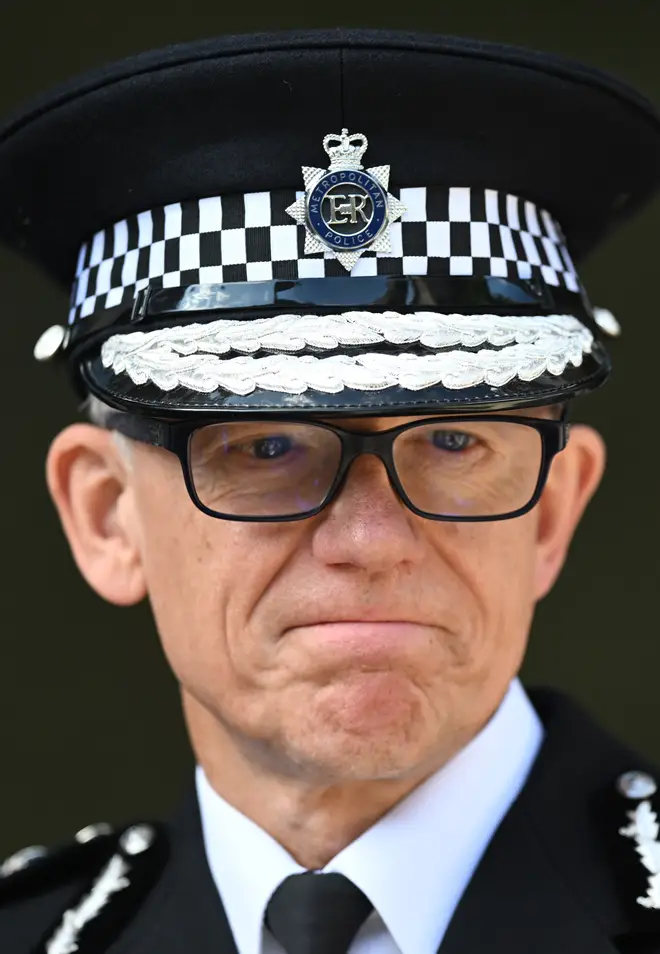
The full list of recommendations included:
Baroness Casey warned all of the recommendations must be taken together and not as part of a “pick and mix” of change which she claims the force has done in the past.
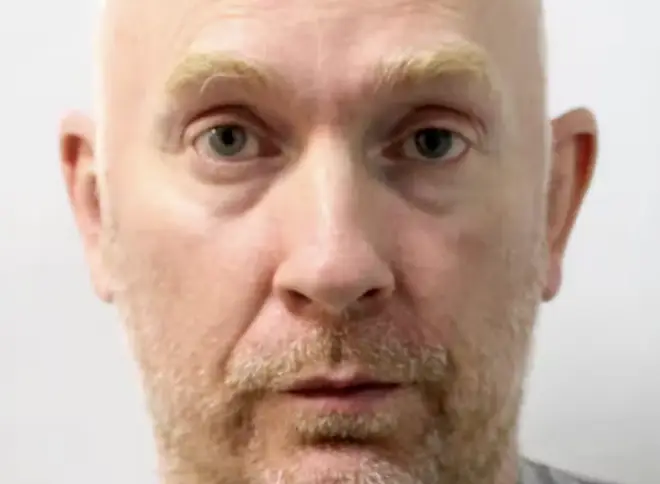
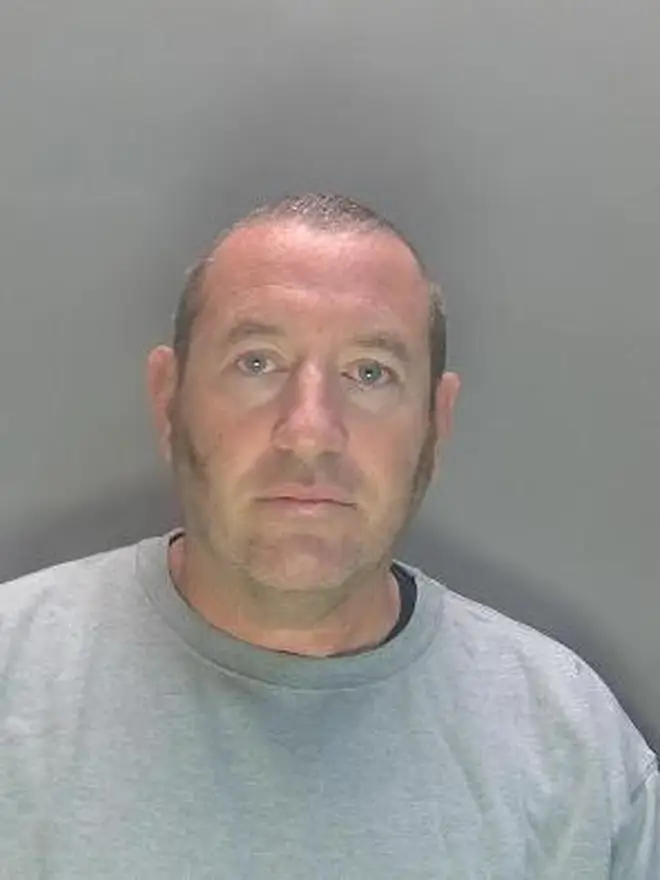
The Commissioner of the Metropolitan Police, Sir Mark Rowley, said: “We are under no illusions about the significance of this moment. It makes for vivid and painful reading for proud police officers.
“We are absolutely determined to reform - we’re going to stare down these issues and take them on. I understand why Londoners’ confidence has been shaken and this report will add to that sense of frustration, disappointment and upset.
“We will do everything that’s humanly possible to implement the recommendations set out in the report.”
Baroness Casey and her team inserted themselves into the Metropolitan Police for a full year as they carried out their review.
During that time, they heard evidence of staff who had been abused by colleagues and didn’t have their complaints taken seriously. They heard claims of training records not being kept and staff carrying out jobs they hadn’t been shown how to do.

Sangita Myska asks whether the Met Police is 'institutionally' racist, sexist and homophobic
Staff told the review the promotion and process of career progression was unclear and based on "who you know" instead of on merit.
And there was a shocking revelation of fridges and freezers, which store samples and evidence from rape victims, being full and out of order. The review was told one of them broke down during the heatwave in 2022 with the evidence samples inside having to be destroyed.
Numerous cases of alleged rape had to be dropped as a result.
Addressing concerns around that specific claim, the Met’s Deputy Commissioner, Dame Lynne Owens, told LBC: “Officers and staff have spoken to me with absolute passion about how they don’t always feel able to give the service to victims that they want to because of the volumes of work that they hold.
“I personally haven’t seen the fridge described by Louise Casey, but now that I know about it, we have to understand it and we have to make sure our officers and staff have the capabilities to respond to the challenges they’re faced with.
“Equally, we have got to do the best we can to protect the samples that are going to be used in court and that has to be a really strong focus for us.”
Meanwhile officers have also been accused of sharing revenge porn between themselves at work and making light of rape.
Alice Vinten, who spent 11 years in the Met, said she saw fellow officers share pictures that had been sent in confidence by their girlfriends, who were often also in the police force.
Ms Vinten said she experienced sexism throughout her career as a frontline police officer, and even had male colleagues randomly show her pornography.
She added that officers also made jokes about her giving oral sex while she was eating a banana.
"I remember them taking the mick out of one of the younger officers because he had got an STI from a prostitute. There was even stories of them using prostitutes in this country," she said.
"There were things that would now be considered revenge porn. A number of the police officers had seen intimate pictures and they would share them around."
Ms Vinten said she overheard police officers say 99% of rape cases were regretful sex, and "women would cheat and say it was rape to get out of it".

Showing a sense of emotion during a briefing with reporters, Baroness Casey described the need for change at the Metropolitan Police as being a “sense of duty to Londoners”.
She described her investigation as starting with Couzens, who abused his position to abduct, rape and murder Sarah Everard and ending with Carrick, being convicted as one of the country’s most prolific sex offenders.
Testimony from one of his victims had to be removed from Baroness Casey’s interim report on the Met’s misconduct process in October because of active legal proceedings.
Reflecting on the fact both Couzens and Carrick were employed in the same unit within the Metropolitan Police, the Parliamentary and Diplomatic Protection Unit (PaDP), Baroness Casey’s report described it as being “a dark corner of the Met where poor behaviour can easily flourish”.
She recommended “effectively disbanding PaDP in its current form, ensuring there is an absolute ‘reset’ with a new ethos, identity and a focus on rooting out unacceptable behaviour”.
Her report found that officers in the Met's specialist firearms command bought themselves tomahawk axes and night vision goggles that could not be used on London's streets. Officers in the unit, which has a "toxic, racist, sexist" culture, also treated themselves to personalised jackets and iPads.
Armed officers are allowed to get away with rule-breaking because they are harder to replace than others.

'Do you have confidence in the police?'
Baroness Casey told LBC: “I think sometimes something is so broken it’s actually quite hard to fix it.
“I think the fact that two of the most high profile and horrific and heinous criminals were in their ranks is enough to make people think, ‘should we rip it up and start again?’
“The Met management has to take this much more seriously than they have previously and do something about it quickly.”
Commissioner Mark Rowley yesterday told reporters: “Parliamentary and diplomatic protection clearly needs radical reform. I can’t disband it overnight because we have to protect Parliament and embassies tomorrow but we will be as radical and as rapid as is practically possible to change the orientation of the unit.
“There’s already a new leadership team and we’re looking at how we can have a higher rate of turnover of staff to get sort of new thinking and new ideas in there. There’s a lot going on and we’ll do everything practically possible to radically reform it.”
He added in a letter responding to the review: "This report sparks feelings of shame and anger but it also increases our resolve.
“I am proud of those people, our officers and staff, whose passion for policing and determination to reform moved them to share their experiences with such honesty.
“This is, in many ways, their report. It must be a catalyst for police reform. “This report needs to lead to meaningful change. If it only leads to pillory and blame of the exceptional majority of officers then only criminals will benefit.
“We need it to galvanise Londoners, the dedicated police majority and politicians to coalesce around reform and the renewal of policing by consent for the 21st century.”
The Met has already published a draft 'turnaround plan', the final version of which is set to be made public in the spring. "Baroness Casey’s insights, alongside feedback from the public, will greatly influence the next version," Sir Mark said.
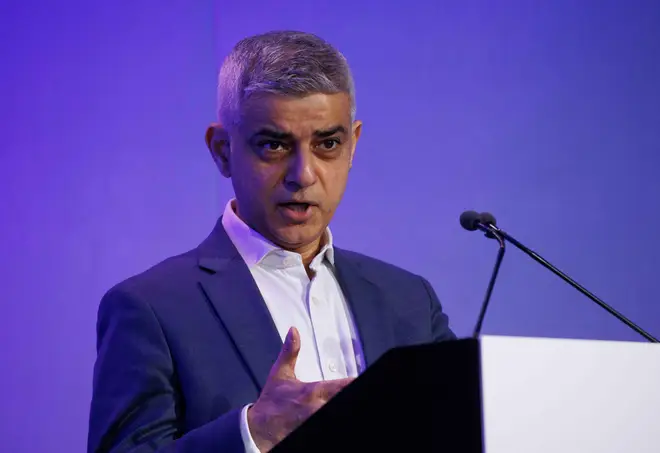
London mayor Sadiq Khan said: "The evidence is damning.
"Baroness Casey has found institutional racism, misogyny and homophobia, which I accept. She has described the Met as defensive, resistant to change and unwilling to engage with communities."
He said he would be "unflinching" in holding Sir Mark to account.
"I want to assure Londoners that I'll be unflinching in my resolve to support and hold the new Commissioner to account as he works to overhaul the force," he said.
"The Met has many committed, professional police officers and staff who want to be part of this change.
"I see police reform as a critical part of my mayoralty and I will not be satisfied until Londoners have the police service they deserve - one that is trusted, representative and delivers the highest possible service to every community in our city as we work to build a safer London for everyone."
Labour leader Sir Keir Starmer paid tribute to Baroness Casey for exposing the "utterly toxic" culture in London's police force and called on Home Secretary Suella Braverman to address the report's recommendations.
“The racist, sexist and homophobic abuses of power that have run rife in the Metropolitan Police have shattered the trust that Britain’s policing relies on and let victims down," he added.
“For 13 years there has been a void of leadership from the Home Office, which has seen Britain’s policing fall far below the standards the public have the right to expect.
“The scale of change required is vast. But the lessons I witnessed from policing reform in Northern Ireland show that it can be done."
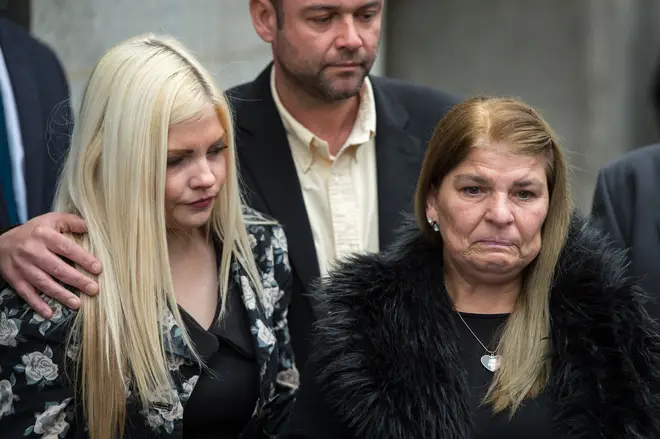
Meanwhile the family of one of serial killer Stephen Port's victims has called for a public inquiry into the Metropolitan Police, following a review into the force that has been described as "damning" by London mayor Sadiq Khan.
Jack Taylor's sisters Donna and Jenny Taylor said an inquiry is needed to understand "how and why this force is failing people so badly".
In December 2021, inquest jurors found that "fundamental failures" by the police left Port free to carry out a series of murders, as well as drug and sexually assault more than a dozen other men in Barking, east London, between June 2014 and September 2015.
The 25-year-old from Essex was Port's fourth and final victim. The Met was accused of homophobia over the failure to stop Port after he took the life of his first victim and went on to murder three more men, but force bosses denied there was an issue.
Donna and Jenny Taylor said the report highlighted the "toxic culture" across the Met Police, adding that they believe police would have reacted differently if their brother had been a woman.
"Someone needs to take responsibility for tackling issues such as homophobia, someone needs to own it," they said. "Not one person has. We still feel that if Jack had been a girl the whole situation would have been dealt with differently from the start.
"You can't put it right and change the culture if you don't know what's going wrong, why it's going wrong, or fail to fully investigate the root of the problems.
"That is why there must now be a public inquiry into how and why this force is failing people so badly."
A group of women's organisations said the force has "nowhere to hide" from the "rats' nest" of institutional misogyny exposed by Baroness Casey's report.
Centre for Women's Justice (CWJ), Rape Crisis and the End Violence Against Women Coalition said the review "confirms a culture which not only tolerates but fosters many of the worst forms of criminal abuse from within its ranks and reveals shocking treatment of forensic evidence gathering in sexual violence investigations".
A spokesman for CWJ added: "As an organisation that works with victims of male violence and police abuse, the rats' nest that has been laid to bare provides an explanation for the repeated dreadful stories we hear from the many women who have contacted us."